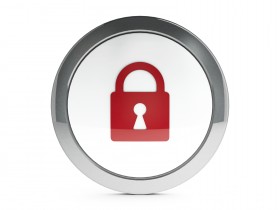Is email yesterday’s technology and will email overload soon be a thing of the past? Maybe for Generation K – teenagers. However, four recent studies on email overload and email traffic suggest that this is definitely not the case see below.

Email overload
1. Email alert: full inboxes leave staff exhausted. Professor Cary Cooper pronounced that email is sapping the life out of the British workforce. It is one reason why British productivity is the lowest in the G7 group. Germany and France are taking action to reduce the email overload malaise, but few UK based companies are doing anything. Sir Cary says ‘companies need to take drastic action’.
2. Here are some of the findings from a fascinating new study of the email behaviour of over 2 million users by a group of researchers at Yahoo and the University of Southern California.
2. The overall volume of emails sent and received is predicted to grow by 3% year on year between 2015 and 2019 according to the Radicati Groups latest email statistics report. This may be a small increase but nonetheless it is still up rather than down.
3. Pointless emails are common. A study focused on British email users (by Sennheiser) found that of 2,000 business users one third felt there was always someone in their team who sent pointless emails (eg the photo copier is broken) when an alternative more effective method could be used. 38% confessed to sending an email which started an email war and 25% said they used email instead of talking because they were emailing about a person sitting close by!
Even if you only receive half the number of emails identified in these studies that is 50 per day and 10,000+ per year. If you are a manger the volume will be higher and the email overload more pronounced.
There are important lessons to be drawn from these studies, not least about email etiquette, the risk of missing important emails as email traffic increases and the impact of email overload on business and personal productivity and finding key emails when needed to support your reason for actions taken.
Simply banning email is not a solution as the Grossman Group pointed out. The solution is to change the email culture and enable people to use email more responsibility. Know when to stop an email chain and talk, no reply is required, etc.
These are challenges which Mesmo Consultancy regularly addresses in its email management training webinars, workshops and one-to-one coaching. If these are issues you face then why not call us now to hear how we have helped other clients like you?
Tags: Cary Cooper, email etiquette, email management training, email overload, Generation K, Generation X, Generation Y, Mesmo Consultancy, Millenials, Radicati Group, Sennheiser, The Grossman Group, University of Southern California, Yahoo
Recently, I was asked, what makes a good email signature block. Here is my advice.
Email signature blocks should be as short as possible. An email signature block is not an advertising campaign. This is best left to either your website or an advertisement. The key point of an email signature block is to tell the recipient who you are and how to contact you.
Key information to include:

Avoid:
Some people include social media presence links which again in my opinion are optional because the signature block starts to become long. Sometimes with short emails the signature block takes up more lines than the email itself. How annoy in that? For people on mobile devices, all they want is the key information.
What is you opinion on email best practice and what should and should not be included in the email signature block.
Tags: email best practice, Email signature block, Mesmo Consultancy
A year from now, will we still be using email as the prima face business communications tool? That is the question I am always asked at this time of year. In a word ‘yes’. It is not only the most durable technological innovation, but in essence it has changed little in its thirty year life cycle. It is still a lean and mean messaging system, all be it we have bent it to be all things to all people, (from a channel through which to manage people, make them redundant and invite them for sex tonight). However, here are five things I do foresee with respect to email which may also help reduce email overload.

The future of email
Consequently, email overload may become less of a drain on people’s productivity as we learn to change our email behaviour. However, it will be important not to replace one set of bad behaviours with another. A change in email behaviour needs to be carefully managed and we at Mesmo Consultancy will be pleased to share how with you how we have helped other organisations make this transition.
Where do you feel we will be with email by the end of 2015? Will it still be the dominant backbone of business communications?
Tags: cyber crime, disconnect on leave, Email behaviour, email overload, Mesmo Consultancy, pen and paper, Unified inbox
Who is the weakest link in the fight against cyber crime? It is us the user. Click here to listen to how we leak data ever day through careless use of email. Without thinking we have either opened or sent an email which opens the door to cyber crime be it hacking, stealing our identity (phishing) and giving away confidential data.
There are many ways we can manage our email behaviour to reduce the risk to ourselves and our organisation of a breach of confidentiality and improve email related security. Here are our top five tips.

Email cyber crime
Education is the key to reducing the risk of an email predicated cyber attack. For a free five minute review of your email security behaviour and how you can improve it either call Mesmo Consultancy on 01202 434340 or email us now to book an appointment.
Tags: bcc, cyber crime, email cyber crime, email security, Mesmo Consultancy
Don’t let yesterday use up too much of today.
Will Rogers
Despite packing up your inbox properly before going on vacation did your colleagues still managed to fill it for you? Did you do nothing and just let the email mount up?

Holiday email overload
Here are our top five tips to reduce the email mountain to inbox zero very quickly. They key is accepting that the more emails you send the more you receive.
To maintain inbox zero, you now need to train your colleagues to change their email behaviour. More next month. Can’t wait, then contact us now to discuss how Mesmo Consultancy can help you.
Tags: Email Bankruptcy, Email behaviour, email overload, holday, inbox zero, Mesmo Consultancy, Outlook 2010